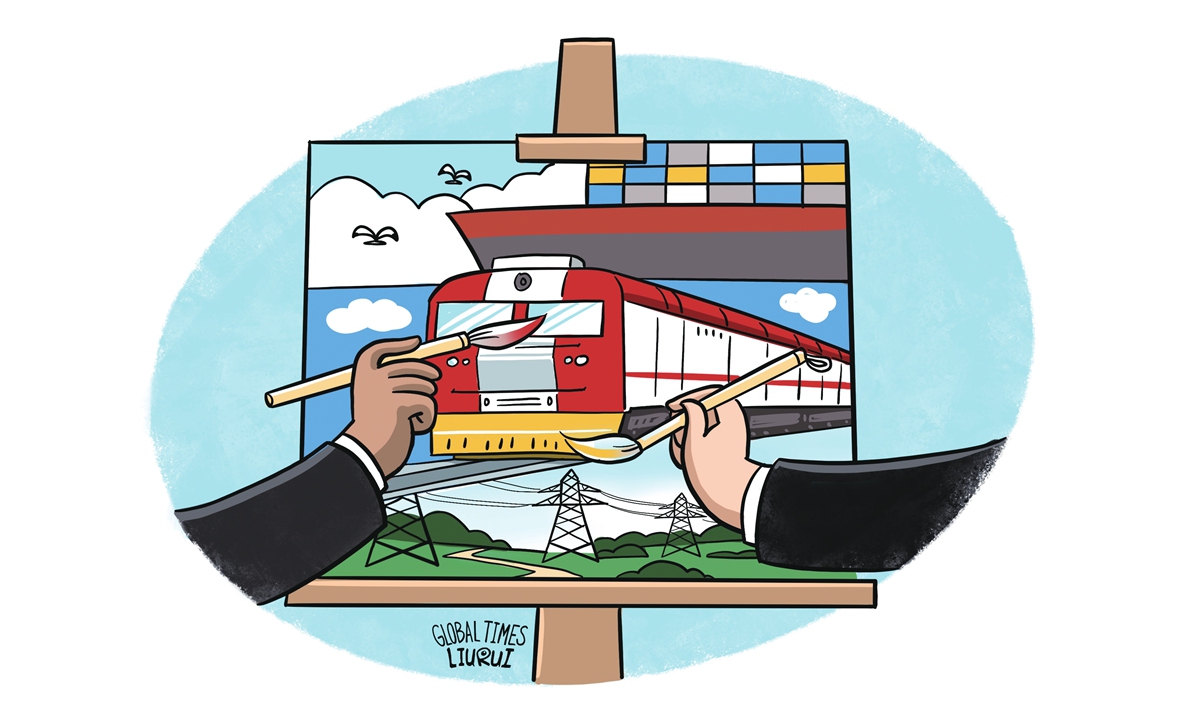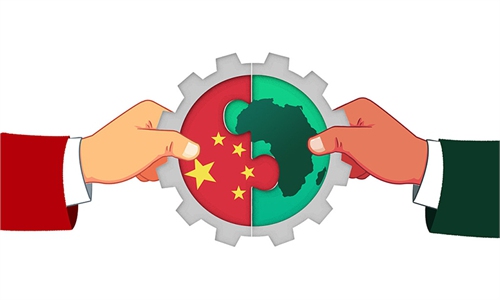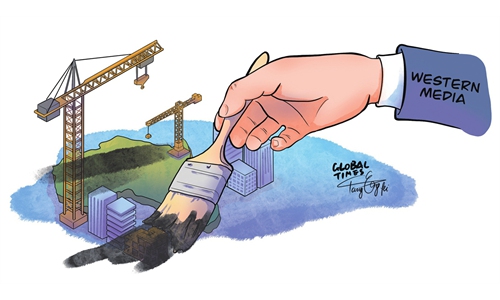Besides a sense of loss, what else should West reflect on from China-Africa relations?

Illustration: Liu Rui/GT
As the 2024 Summit of the Forum on China-Africa Cooperation in Beijing approaches, China-Africa relations have once again captured the attention of media worldwide. In fact, the West hasn't taken its eyes off the China-Africa relationship in recent years, worrying about China's influence in the region and around the world. Behind their eyes of surprise, skepticism and suspicion, lurks a sense of loss. So, why China?Following five centuries of the West's global expansion, a significant shift has occurred. Africa and China - along with Asia as a whole - are experiencing unprecedented personal and intellectual exchange and integration. And it is this significant shift that has profoundly changed people's traditional perception of global development model, and brought a sense of loss to the West.
Guided by the Belt and Road Initiative, Chinese investments and China-Africa cooperation have laid a foundation for sustainable development in Africa. As Chinese enterprises and people enter Africa, and Africans come to China for business and study, there has been an unprecedented wave of people-to-people exchanges, nourishing a vibrant economic and intellectual vitality.
For those who have been to Africa and interacted with African people, they can easily sense the impact of Chinese enterprises and people on this region through most casual conversations.
In many African countries, people are starting to discuss why China has developed so rapidly over the past three to four decades and how African countries can ignite similar development dynamics.
Chinese investment in African infrastructure covers highways, railroads, ports, power grids, communication facilities, etc. These projects have not only improved infrastructure conditions but also significantly boosted local economic development, creating numerous employment opportunities.
Take Kenya's Mombasa-Nairobi Standard Gauge Railway, for example. The project has not only reduced transportation time but also stimulated economic activity along its route, creating tens of thousands of jobs.
In contrast, Western countries' historical engagement with Africa has been more about plundering than building. Historians estimate that the UK alone extracted wealth from Africa amounting to hundreds of billions of dollars, which fueled industrialization and modernization in the West, leaving Africa without basic infrastructure necessary for modern economic development.
More importantly, Chinese investment is not just about injecting capital, but also about sharing technology and experience, training work capabilities and spreading the virtue of hard work.
This improvement in their economy has provided more Africans with stable jobs and income sources, and changed their perception of family and life. People on the continent today exhibit an energy starkly different from the past. Having gained new understanding and experiences about society development and self-reliance, their attitudes toward work and life have profoundly changed, something Western colonialists could never have - and indeed, never did - bring to them.
Currently, China is deepening economic cooperation and promoting industrialization to unleash the economic potential in African countries, thereby fundamentally improving their capabilities of debt repayment. As one economist said, debt itself is never frightening as long as it's used to promote economic development.
China's investment in Africa has stimulated its Western counterparts' engagement in the region. But it will be a challenge for the West to invest in Africa merely with an aim to balance or compete with China's influence.
If Western countries really wish to help with Africa's development, they should participate actively and provide substantial support, rather than standing aside, lecturing China and Africa like a nasty old colonialist. In fact, the West has already lost its command and control in Africa. In today's globalized world, Africa's development is not only crucial for the continent itself but also for the future of the world. As an ancient African proverb goes, "If you want to go fast, go alone. If you want to go far, go together." The collaboration between China and Africa is about going further together.


